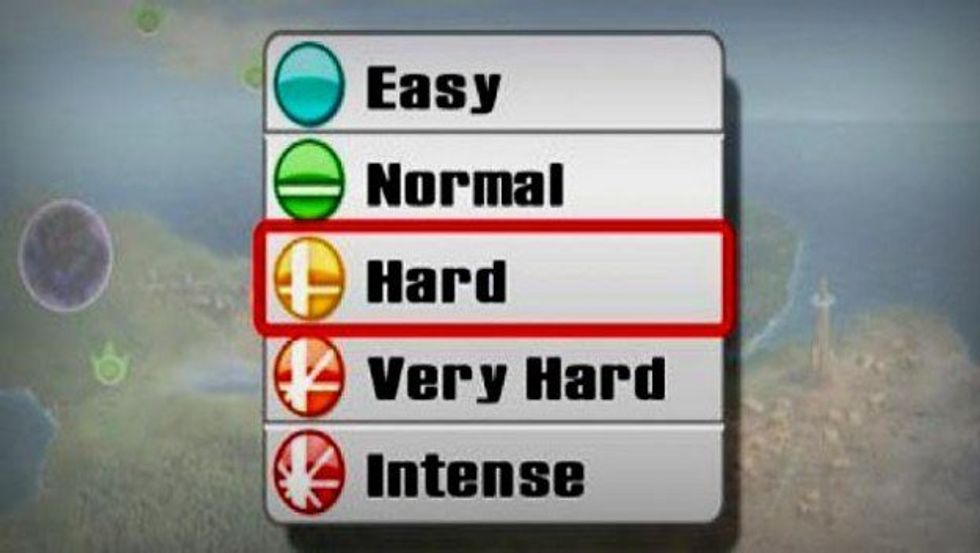It’s 5 p.m. on a Friday night and I’m curled up in bed, screaming at my computer screen. One of my highly ranked soldiers in the video game XCOM: Enemy Unknown has just been murdered by an alien invader. Two turns later, my next highest-ranked soldier is also killed. By the same alien.
As I lie there open-mouthed, staring at the screen in shock, my anguished brain can only wonder why I’m putting myself through this torment. Sure, video games are fun. Sometimes they’re even fun when I’m bad at them! But sometimes I grind through hours upon hours of disappointment, anger and frustration. Sometimes when I think I’m about to win big, everything goes sideways and I’m left with only the sinking feeling of failure. Why do I, and so many other misguided people, put ourselves through this?
Practice makes perfect. My parents repeated this mantra non stop throughout my childhood whenever I was overwhelmed with frustration at my own shortcomings. How do you get to Carnegie Hall? they’d intone endlessly, practice, practice, practice. The same principle, I assume, applies to most video games. Enough practice, enough hours poured into failure, and eventually your character will level up, your skills will improve, and the game will become enjoyable. Or at least, it’ll become easy. Easy, enjoyable-- are those the same thing?
I, like much of my generation, spent most of my childhood on sites like Neopets or Club Penguin. I whiled away countless afternoons on my family’s desktop, racking up Neopoints or outfitting my igloo. A few years ago, just for kicks, I logged back into my old Neopets account. It was a pleasant nostalgia, remembering what I loved about the game. But it was, for lack of a better word, easy. Most of the minigames were clearly designed for a younger age group, and I was able to get ridiculously high scores with minimal effort, rake in the Neopoints, and buy whatever I wanted in the entire game. This, for a short while, was very exciting. I was becoming what my younger self had only dreamed of! Of course, as you could probably predict, the charm eventually worse off. The game simply wasn’t fun when it wasn’t challenging. It was like being given a container of chocolate frosting. Heck yes, you might think, I get to eat frosting! No cake, just frosting! Frosting, as everyone knows, is the best part of the cake, just like winning is the best part of video games. But eat too much of it, and you’ll feel sick. Was that metaphor a stretch? Maybe, but sickly sweet was exactly how steamrolling through Neopets felt.
I Facebook messaged a friend of mine to get her opinion. When we were younger, she was a certified Neopets baller, Neopoints beyond what I can even imagine.Did she get bored of the game once she was, for lack of a better word, winning? “I mean the thing about neopets is it's physically impossible to win. . . I mean, tbh, while I was playing neopets, the only games I genuinely enjoyed were turmacroll and destruct-o-match. Everything else was ways for me to make neopoints to spend.”
So, Neopets is a bad example. Even if my friend was baller in some aspects, there were always new challenges to take on. “I never did the neopean [sic] stock market tho. That was also a thing,” she astutely observed.
Games like that, with so many options and possibilities, are difficult to win or lose. There’s always a different challenge if you want to look for it. In what might be the weirdest comparison I’ve made yet, I’m reminded of Fallout 4. Some people disappear entirely into the base-building and crafting components of the game and never return. Others delve into the multitudes of side quests that exist. Still others just go straight for the main storyline, waiting until after the plot is finished to begin other elements. Even though there is a decided win condition, it’s impossible to really lose. Upon death, you just respawn at your last save. Frustration might abound at some points (I’m looking at you, Super Mutant Suiciders), but you never have to restart the game from scratch. It’s frustrating, in a reasonable dose. Plus, if a specific task is too hard, you can always ignore it until you’re strong enough to take it on, and then relish in how easy the section you used to struggle with has become.
I sought out another source: my little brother, the gamer of our family. He has 48 games in his Steam inventory, an amount that might seem small to some, but seems incomprehensibly huge to me (for reference, I have seven). His take on the issue: “Challenge in a game is a good thing because it provides a sense of accomplishment when you overcome a challenge. If you’re really good at a game that isn’t bad, as long as there is still more to shoot for, like a higher score or a quicker time or a harder difficulty or getting all the collectibles, but eventually being that good at the game will mean you will run out of content.” He followed this up with a generous caveat: “it probably just depends on the person.”
So yes, we like being frustrated. If the game wasn’t hard, or if there wasn’t anything left to do (or everything remaining was unthinkably easy), then perhaps the more “gamey” elements of the game would no longer be enjoyable (I’m not even touching elements like story--those can wait for another day). Frustration, in small amounts, is like being hungry. No one likes being hungry, but food does taste so much better when you’ve had to wait for it (that’s my final weird metaphor, I promise). In short: rest in peace my fallen XCOM soldiers, I’ll be back to shooting up aliens (and being frustrated) tomorrow.



















